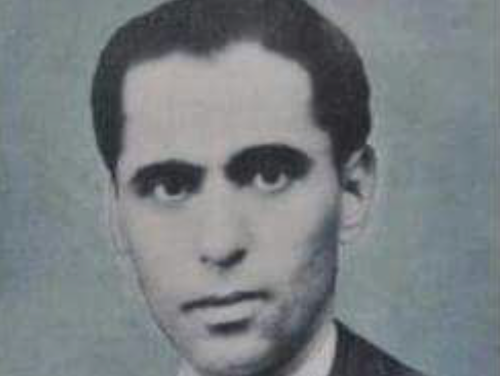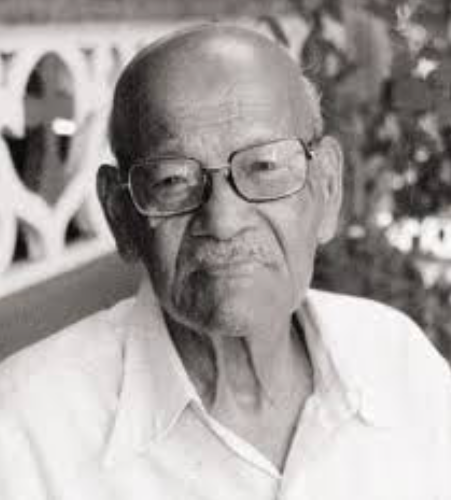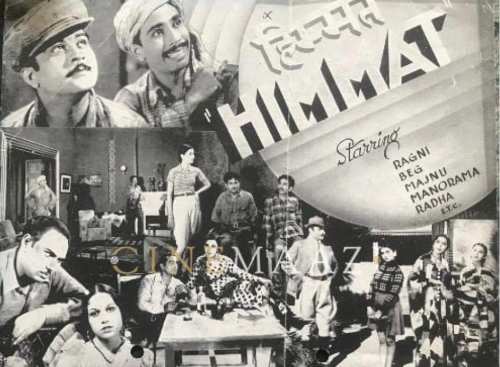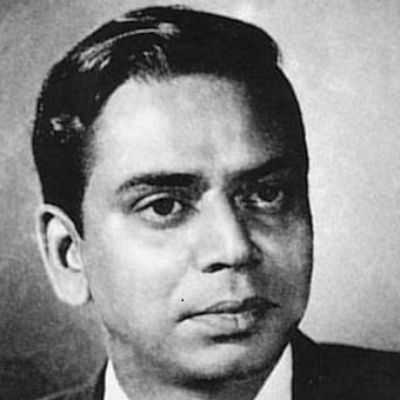Sunsets are beautiful, as long as it is not your own sun that you see sinking slowly over the horizon. December 14, 1966 saw one such sunset, for my Baba left us that day, never to return. Today I still wonder at my inability to get over it.
Baba was born Shankardas Kesrilal Shailendra in Rawalpindi on August 30, 1923, the eldest of four sons of my grandmother Parvati Devi. My grandfather Sri Kesrilal originally hailed from Bihar. Sometime during Baba’s childhood, the family moved to Mathura.
Calamity struck when he was still quite young, when he learnt that his mother was dying. He often recalled the moments when he walked barefoot in the scorching sun, his body sunburnt and his feet blistered, praying for her survival. The day she died, however, he felt deeply disillusioned and let down, causing him to turn atheist for practically the rest of his life.
His first full-fledged job with the railways brought him to Bombay in 1947, when India’s struggle for freedom was at its peak. Technical aspects of his job did not suit his artistic nature and he would much rather spend time writing poetry than oil workshop. His colleagues often advised him against absconding from work to write ‘senseless ramblings’, but to no avail.
Baba was a true poet for whom simply being alive was poetry, and life itself a poem. He derived much inspiration for his more serious work from long walks on the Juhu beach early in the morning, but was equally adept at writing the most profound lyrics for ordinary film situations. Those lyrics were vibrantly alive, in the sense they went far beyond the context of the film situation for which they were intended and lived on long after the film itself had passed from memory. For me, there is a Shailendra song for any emotion, any situation, from birth to death, such was his versatility. Millions of listeners feel this way about his work. He was a true professional, and behind his success as a writer was his ability to write for a film situation irrespective of his personal views.
Tu zinda hai, tu zindagi ki jeet pe yaqeen kar,
Agar kahin hai swarg to utaar le zameen par
Ye gam ke aur char din situm ke aur char din
Ye din bhi jaenge guzar, guzar gaye hazaar din
Yet the specter of death always haunted him. He was obsessed by death. There was no fear involved, but a kind of helplessness drew him towards it. He saw death even in the most romantic moments, as in this verse from the song Holi aaye pyari pyari (“Pooja”):
Ek baras mein ek din holi jag do din ka mela
Tan ka pinjra chhod k eek din panchi jaae akela
Do ghadi muskaaye phir jeevan hi phulwari
And then there’s my favourite:
Ki mar ke bhi kisi ko yaad aayenge, Kisi ke aansuon mein muskuraenge
Kahega phool har kali se baar baar, jeena isi ka naam hai
The story of how his producing “Teesri Kasam” led to various problems and his untimely end is well known, but what bothered him was not the film’s failure at the box-office, but that his investment in friends he trusted and loved went wrong. After a particularly bad bout of despondency, my mother could take it no more, and on December 13, 1996 he was to be admitted to the Northcote Nursing Home. On the way, he and my mother stopped at the famous cottage at the RK Studios to call on Raj Kapoor and Baba promised Raj that he would complete the lyrics for Jeena yahan once the December 14 tamasha (Raj’s birthday celebration) was over. That was one promise he never kept, for he died on Raj’s birthday.
Baba loved the seashore. He wrote, “I am the early morning light. I cast no shadows, I leave no shadow behind. The sun is my father…” The world has his poetry, but I would much rather have him.
This is a reproduction of the original published in the booklet for the musical drama Dil Ki Nazar Se - Kaviraj Shailendra presented by the Ibaadat Foundation.
Tags
About the Author







.jpg)


